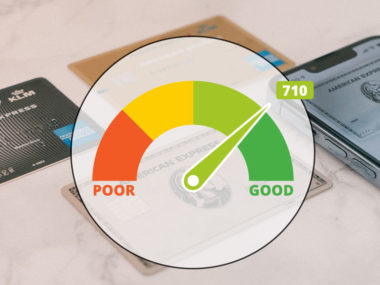If you have a credit score of 682, you have good credit. In fact, according to the FICO credit scoring model, you officially fall in the lower end of the “Good” range, which extends from 670 to 739.
Good credit is a great thing. It gives you access to many benefits that can give you a leg up, financially speaking.
However, there is still plenty of room to grow. Once your score hits 740, it becomes “Very Good” and beyond that, there’s the elite “Exceptional” tier that spans from 800 to 850.
Table of Contents
Why Your Credit Score Is 682
If you want to steer into the benefits of good credit, it’s important to analyze your score and look for strengths and weaknesses. While your credit score is a unique combination of your financial history, several universal factors tend to impact all credit scores.
Take some time to review the following elements that play a major role in calculating your credit score.
Hard Inquiries
One of the simplest ways to lower a credit score is through hard inquiries. These take place when a lender formally “checks your credit” before giving you a loan.
A hard inquiry shows up on your credit report and can temporarily lower your score, but usually for no longer than a year. Unless you have a large number of hard inquiries on your report, it should be nothing to worry about.
Derogatory Marks
Similar to — but worse than — a hard inquiry, a derogatory mark is a mark on your credit report that signals a financial shortcoming in the past.
Derogatory marks can appear due to anything from a missed payment or a claim by a collection agency to something as serious as a repossession, foreclosure, or even bankruptcy. Once on your report, a derogatory mark can linger, hurting your score for seven and even 10 years at a time.
Total Debt
Your borrowing behaviors consist of two different kinds of credit: revolving and non-revolving credit. The former is money that you borrow and pay back consistently, such as a credit card or home equity line of credit. The latter consists of single, lump-sum payments that you pay back over time, such as an auto loan or a mortgage.
If your total non-revolving debt becomes too large, it can hurt your credit score. At the same time, if your non-revolving debt is relatively low, it can encourage lenders to loan you money, since they see that you can pay it back.
Credit Utilization, Age, and Mix
Your credit utilization ratio is a huge factor in calculating your credit score. It consists of the amount of money you’ve actively borrowed divided by your credit limit. When your ratio gets over roughly 30% for your various accounts, it can hurt your score.
The average age of your credit can also impact your credit score. The older your average credit, the better. In addition, the larger the variety of credit options that you’re using — e.g. auto loans, credit cards, student loans, and so on — the better off your score will be.
Payment History
Your payment history is the number one factor that can make or break your score. Even if you only miss an occasional payment, it can lead to a lower score.
Maintaining a perfect payment history should be at the top of your to-do list if you want to improve your credit.
With each of the above factors, consider how they have uniquely impacted your score. How do you handle payments? Do you have a lot of non-revolving debt? These are the little discoveries that can lead to huge changes in your credit score down the road.
What Can You Do With a 682 Credit Score?
With a score of 682, you are firmly in the Good credit score range. As long as you don’t let your score slip, this gives you access to many benefits. For instance, you can:
- Have a better borrowing experience: Having Good credit opens the doors to lower interest rates, higher borrowing limits, and a greater chance of getting approved for a loan in the first place.
- Greater respect: “Good” credit means you’ll be able to do things like negotiate with lenders and ask for refinancing. You may even find it easier to land a good job, as many employers conduct credit checks.
- More rewards and lower costs: With a 682 credit score, you can expect to be offered some of the lower-end benefits and rewards that come with many of the major credit cards. You can also expect to pay less in security deposits for housing.
While a score of 682 gives you initial access to a slew of good credit benefits, many of these will be limited. However, if you continue to cultivate good credit, these financial advantages will only become more profound.
How to Improve a 682 Credit Score
If you have a credit score of 682, you have nothing to worry about. Your finances are in good standing. You’re also in a perfect place to build from a position of strength.
Nevertheless, it’s still important to remember that you have years and even decades of financial decisions ahead of you. These can drag your score down just as easily as they could bring it up.
With that in mind, it’s important to foster high-quality financial habits that will help your score improve in the future. Here are a few suggestions to start with:
- Review your credit report: You can get a free copy of your credit report from the three credit bureaus once a year. Get into the habit of doing this.
- If you discover errors, send a dispute letter to fix them.
- If you find derogatory marks, address the issue and then send a goodwill letter to try to have it removed.
- Build and stick to a budget: A good budget grows with you. As your financial fortunes progress, it’s important to keep your budget updated and in step with your current financial situation.
- Manage your debt: Do everything you can to keep your non-revolving debt low. Also, continue to responsibly use your revolving lines of credit.
If you can get into habits like checking your credit report annually and sticking to a budget, it will only serve to improve your score. Given enough time, this can eventually lead to a Very Good or even an Exceptional credit score, at which point the world will be your oyster.
Image Source: https://depositphotos.com/





